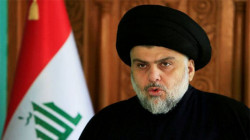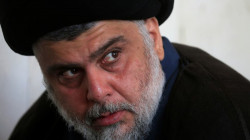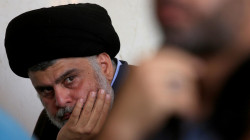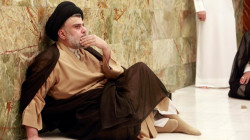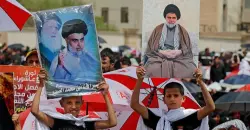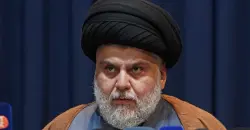Haaretz: Iraq's chaos is eroding Iran’s role as the region's puppet master
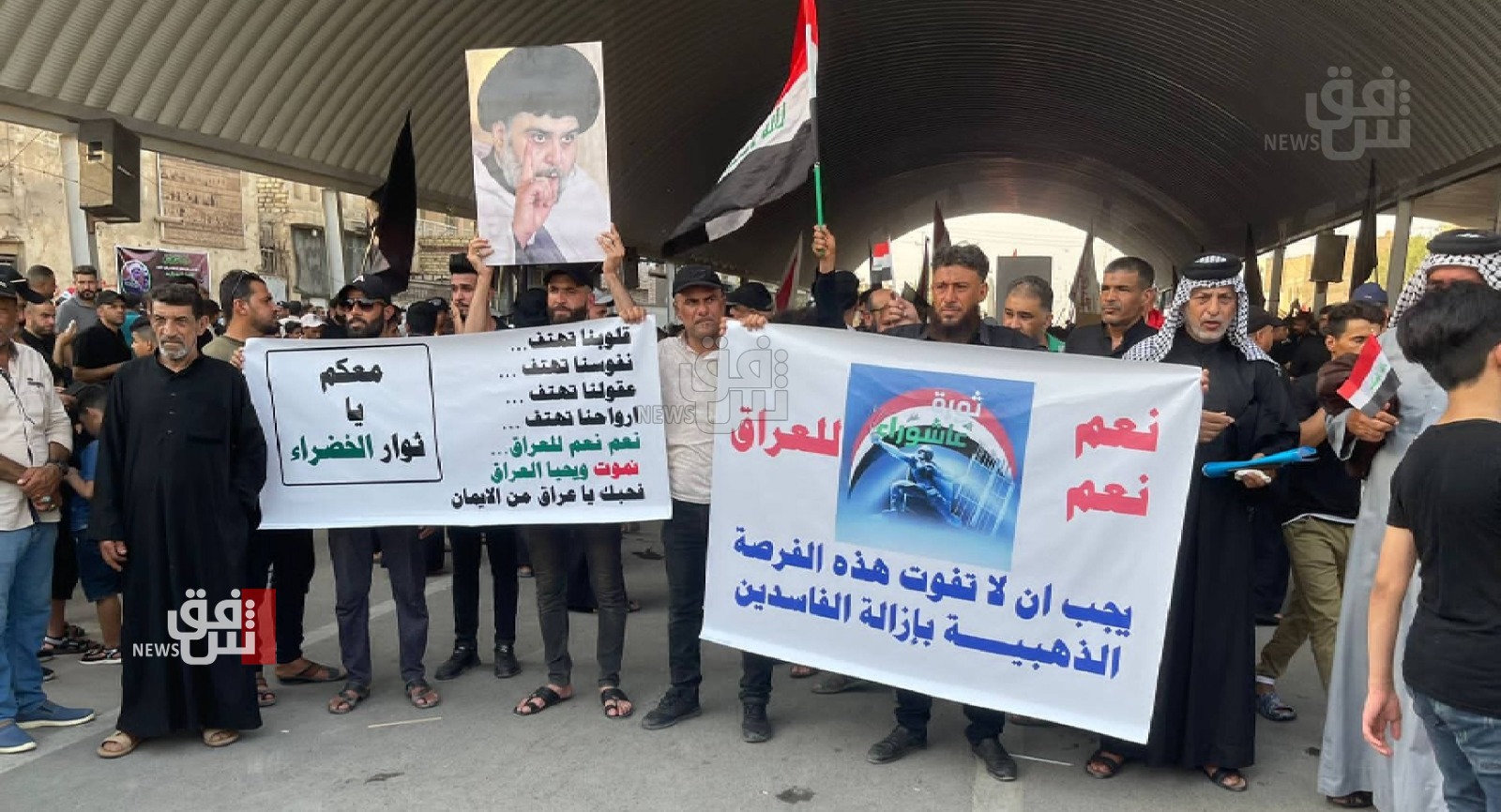
Could Iran lose its hold on its most important bridgehead in the Arab Middle East? Is Iraq at the brink of a civil war? Most importantly, what does Shi'ite cleric Muqtada al-Sadr want? Anyone who can answer the last question holds the key to the other two.
After Iraq's general election about 10 months ago, harsh disputes between the political blocs prevented the appointing of a president or prime minister. True, such a span isn't really new for Iraq, but this time it seems there will be no choice but to dissolve parliament and hold a new election.
It might seem that this is just another development à la countries like Lebanon, Tunisia and Sudan. But while in these countries it's a matter of power struggles, Iraq could have regional and even international consequences.
Iraq is considered a failed state, corrupt and with high unemployment. It has the third largest oil reserves in the world but must still import electricity and natural gas from Iran, as Iraqis suffer blackouts. The country sits on two great rivers, the Tigris and the Euphrates, but it still can't supply running water to all its people.
It can be said the current political battle started during the American occupation that began in 2003. Paul Bremer – the U.S. diplomat heading the authority running Iraq’s civil affairs – made every mistake possible. He purged the military, police and civilian agencies of Baath Party members, leaving the country without a functioning army or police force. His arrogant style prevented him from connecting with the Iraqi leaders who could have carried out the necessary tasks.
Meanwhile, deep divisions between the Pentagon, CIA, White House and State Department wrecked communication on Iraq policy. Billions of dollars spent by the Americans on reconstruction plans for Iraq wound up in the bank accounts of contractors, middlemen, politicians and others.
Reports by Iraq's inspector general on corruption are packed with details: theft, embezzlement, enormous waste and a lack of oversight. But U.S. administrations continued to claim that Iraq was a success story and kept funding the swamp that turned into a bloody front against Al-Qaida and local militias.
This was also Iran’s finest hour; it rushed to take advantage of the end of Saddam Hussein’s deadly rule to build its most important outpost in the Middle East. Leaders of Iraqi Shi’ite movements became the country's leaders. But ideological and strategic disputes arose among the major Shi’ite movements.
Iraq's senior clergyman, Ayatollah Ali al-Sistani, made clear early that he opposed the model of an Iranian regime, saying that Iraq needed a democratic government not subordinate to a spiritual leader. His political and religious rivals, some of whom spent long exiles in Iran during the Saddam Hussein era, hoped to promote an Iranian system with a supreme leader championing the principles of the Islamic Revolution.
This ideological clash is feeding the current bitter rivalry between the political blocs. It's a Shi’ite versus Shi’ite battle feeding not only on ideological and religious differences but also on huge ego wars and burning competition for senior jobs and budget money.
For a moment, after the election results were announced in October, it seemed Iraq had settled down and could stave off a political crisis and economic catastrophe. The bloc headed by Muqtada al-Sadr won 73 of parliament's 329 seats; it looked like he would be able to form a government. But then his opponent, Hadi al-Amiri, who heads the Badr Organization – a Shi’ite militia backed by Iran – formed a coalition of Shi’ite parties that calls itself the Coordination Framework. His partners in the alliance include all the Shi’ite parties except for al-Sadr’s.
The Coordination Framework, which has 130 seats in parliament, is now the largest political bloc and is trying to form a government in which the ministries are distributed based on ethnic group and movement – in order to neutralize al-Sadr.
The Coordination Framework says that because it's the largest bloc in parliament, it deserves the premiership and other top portfolios – and their huge budgets. Al-Sadr, who isn't asking to be prime minister, disagrees and says the movement that won the greatest number of votes should form the new government. In other words, the next prime minister can only be someone al-Sadr appoints and trusts.
According to the Iraqi constitution, the president taps the prime minister and parliament elects the president by a two-thirds majority. After many months of gridlock, al-Sadr withdrew his party from parliament in June, freezing the work of that body and denying it legitimacy. Meanwhile, regarding the two-thirds majority needed to elect a president, the president is a Kurd, but the Kurds are now split on who's the best candidate.
The severe rivalry between the two large Kurdish blocs, headed by the Barzani and Talabani families respectively, has been going on for decades and has even triggered a civil war in the Kurdish region. The outgoing president, Barham Salih, comes from the Talabani bloc, so the Barzani bloc says it deserves the presidency.
If all this weren't enough, the Barzani bloc supports al-Sadr, while the Talabani group has joined with the Coordination Framework. Part of the Sunni bloc stands with al-Sadr, so even if the Kurds can agree on a candidate for president, parliament will have a hard time achieving the necessary majority to choose a prime minister.
Al-Sadr isn't sufficing with verbal opposition to his opponents' aspirations. Last month his forces broke into Baghdad's Green Zone housing the government ministries, foreign embassies and residences of senior Iraqi officials. Al-Sadr’s followers also broke into parliament and launched a sit-down strike.
After tense negotiations, al-Sadr’s forces withdrew, only to return it this week; they put up tents and food stands in the plaza next door. They say they won't leave until their leader’s demands are met: Dissolve parliament and set a date for a new election.
All the parties involved have declared they don't want an armed struggle or clashes in the streets. But the atmosphere is like Baghdad's temperatures – about 46 degrees Celsius (115 Fahrenheit) this week. The fear is that someone will open fire or a gun will go off, launching a war of everybody against everybody.
The United Nations, which sent a special envoy, the United States and other Western countries are calling for peace, but no one will be surprised if this request finds no buyers in Iraq. Iran is worried about these developments and its inability to dictate the process. Iran’s attempts to propose Mohammed Shia al-Sudani, the Coordination Framework's candidate for prime minister, were nipped in the bud.
The attempts by Nouri al-Maliki, who once served as prime minister and is considered loyal to Iran, have dropped off the agenda after his insults against al-Sadr and other Shi’ite leaders were leaked to the media. Esmail Ghaani, the commander of the Iranian Revolutionary Guards' Quds Force – who replaced Qassem Soleimani after he was killed by the Americans in January 2020 – has visited Iraq a number of times recently. But he has failed to get the sides to reach an agreement.
Iran fears that a new election in Iraq will only further erode its position. Since the Iraqi protests in 2019 that toppled the government and led to the current crisis, public sentiment against Iran has only grown. Al-Sadr is taking great advantage of these anti-Iranian feelings: He's calling for all foreign forces to be expelled from Iraq.
Al-Sadr doesn't just mean the 2,000 American military instructors left in the country. He also means Iran's part in running the Shi’ite militias, and its granting of patronage to the parties that support it. Plus it leverages the gas, electricity and water that it sells to Iraq.
Al-Sadr, 47, is the scion of a family of famous Shi’ite religious scholars who fought against Saddam Hussein or were murdered by him. He relies on his national and religious family credentials and aspires to be Iraq's top Shi’ite political leader, even if not its highest religious leader.
Al-Sadr lacks the highest religious education, but if he achieves his political aspirations he'll appoint his own new spiritual leader after the death of al-Sistani, who is 92.
These forecasts worry Iran's leaders greatly. Losing control of Iraq could create a chain reaction in Lebanon and shatter Iran’s image as a regional power. Many Iraqis believe that if Iran has its back to the wall it will use all its economic and political power against al-Sadr and his supporters. It may even send its Shi’ite militias to take on al-Sadr’s forces.
(Haaretz)
